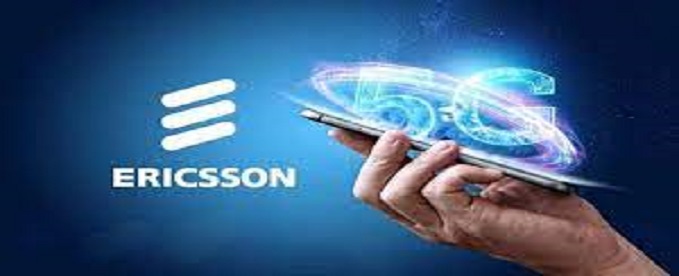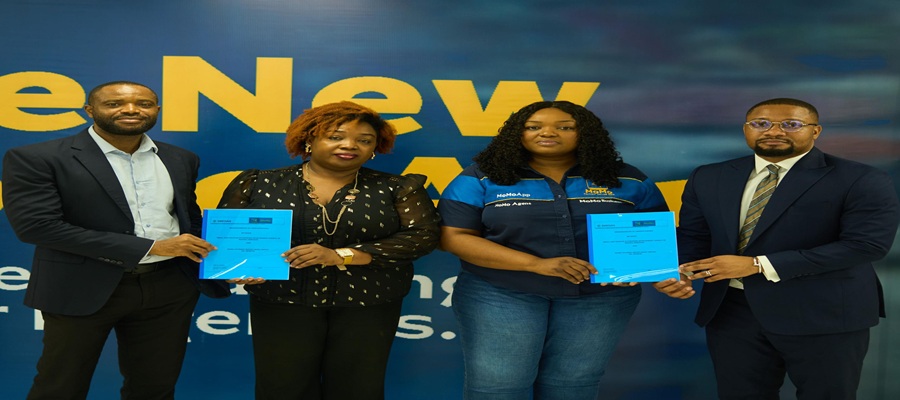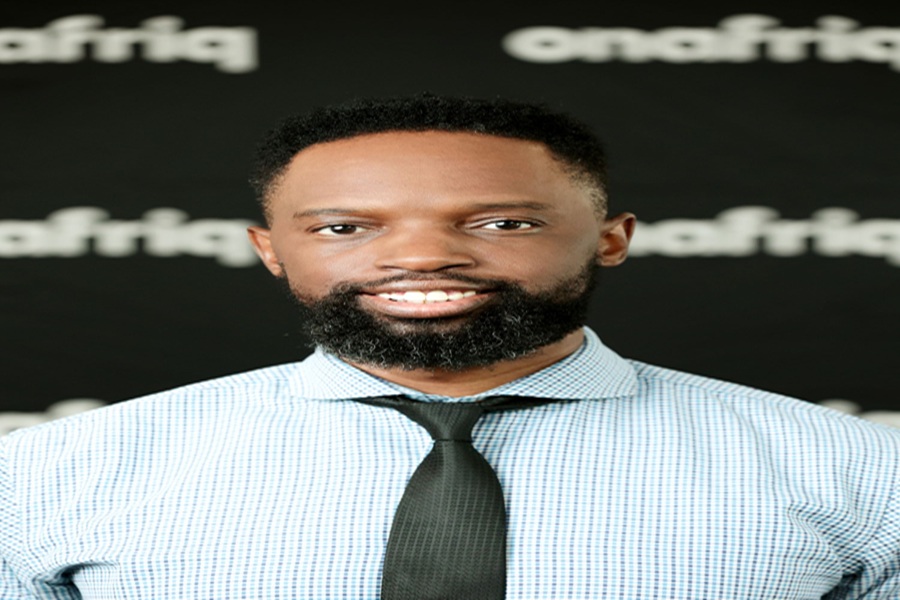Telecom
NCC to Release Final IM for 5G Auction as Applications Ends Tomorrow

Nigerian Communications Commission (NCC) has released the final Information Memorandum (IM) for the planned auction of the 5G spectrum licence auction scheduled for December 13, 2021.

The commission also disclosed in a statement that it tomorrow, Wednesday, November 24 will be deadline for the submission of application by interested telecom licencees and new entrants to submit bids for the auction.
NCC plans to auction two lots of 100 MHz TDD slots available in the 3.5 GHz band to support the delivery of ubiquitous broadband services. The two lots are in the 3500-3600 and 3700-3800 MHz frequency and will be offered on a technology neutral basis for provision of communications service.
Prof. Umaru Danbatta, executive vice chairman, NCC, has urged stakeholders to pay attention particularly to Sections 1 (e), VII {(i) (ii), (v) (3) (c)} and XI (e) of the IM. The NCC has already pegged the Generic Reserve Price (GRP) for each lot of the spectrum at N75 billion ($197,400,000.00) or its equivalent in naira at the prevailing Central Bank of Nigeria (CBN) rates at the time of the auction.
The spectrum lot won by each bidder will be assigned on a nationwide basis covering all the 36 states of the federation and the Federal Capital Territory (FCT) on a subsisting policy on “use-it or lose-it” with respect to the use of assigned Spectrum.
According to the final IM document, “where a winner does not hold a Unified Access Service Licence (UASL) which is the operational licence for the frequency spectrum slated for auction, it will be issued at an additional fee of N374, 600,000.00 only or at the subsisting licence fee at the time of the auction.”
The NCC says the proposed licensing of 3.5 GHz Spectrum has been influenced by the need to open up the space for the delivery of present and future generations of broadband services to subscribers in line with the Nigerian National Broadband Plan (NNBP) 2020-2025.
Professor Danbatta said through the collaborative efforts of the National Frequency Management Council (NFMC) and Nigerian Communication Satellite Limited (NigComSat), the NCC secured the necessary 3.4-3.9GHz C-band for deployment of 5G services in Nigeria.
“The C-band is globally accepted as the candidate of choice for 5G deployment due to its excellent propagation characteristics,” he said, adding that it has become imperative to immediately license the 3.5GHz band in Nigeria for the deployment of 5G services.
According to the prequalification criteria, an applicant must be a company incorporated in Nigeria; must be independent (10% ownership interest test as defined in Section 7.6.2 of this IM) from all other applicants under this auction process and must transfer an Intention-to-Bid Deposit (IBD) for the amount described in Table 2 into the designated account in cleared funds.
“This deposit will bind the applicant to take up a Licence, should it be a successful bidder, at the reserve price or any higher bid value submitted during the process. Licenced Operators participating in the process must be in good regulatory standing with the commission.”
According to Engr. Olutoyin Asaju, director, spectrum administration, NCC, new entrants are allowed to participate in the auction in addition to existing licencees.
NCC plans to use the Ascending Clock Auction which is software based. It said provisions have been made for manual auction should the auction software fail during the auction process. It plans to have a mock auction on December 6, 2021 which shall precede the main auction starting December 13, 2021.
NCC sought the active participation of stakeholders in the deliberations that would follow towards the licensing of the 3.5GHz mid band for the deployment of 5G services amongst others in Nigeria.
Telecom
MoMo PSB, SMEDAN Forge Pact to Digitise Nigeria’s SMEs

MoMo PSB, MTN Nigeria’s fintech powerhouse, sealed a game-changing pact with the Small and Medium Enterprises Development Agency of Nigeria (SMEDAN) on February 3 at its Victoria Island headquarters, unleashing digital and financial tools to turbocharge SMEs nationwide for seamless operations, revenue surges, and sustainable scaling.

MoMo PSB, SMEDAN
The partnership arms SMEDAN-registered merchants with MoMo’s multi-channel arsenal—apps, POS, USSD, partner portals, and custom platforms—to hoover payments across streams, automate payrolls, juggle tills and shop chains, and boss core business metrics from one slick dashboard.
This powerhouse duo targets Nigeria’s SME engine room, where digital chokepoints throttle growth, injecting MTN’s MoMo muscle to slash friction and unlock efficiencies for mama-put hustles to mid-tier factories alike.
Industry watchers hail the MoU as a masterstroke in President Tinubu’s economic revival playbook, fusing government SME scaffolding with private-sector fintech firepower to birth a new breed of digitally dominant entrepreneurs primed for AfCFTA conquests.
Telecom
MTN Ignites Teacher Revolution: 5,000 Digitally Armed for Phase Two

MTN Foundation and SAIL Innovation Lab have roared into Phase Two of their blockbuster Teachers Fellowship Programme, onboarding 5,000 elite educators from Nigeria’s 36 states and the FCT since January 13 to turbocharge public schools with cutting-edge digital wizardry and global teaching firepower.

MTN
This mobile-first crusade, laser-focused on arming primary and secondary school titans for the digital economy showdown, kicks off with a grueling four-week virtual bootcamp via WhatsApp and Google Classroom—slashing travel barriers for even the remotest rural warriors.
Organisers promise peer-to-peer fireworks and real-time gut-checks, capping Stage One with a virtual gala saluting milestones before culling the pack to a fierce “Top 500” via engagement, assessments, and hustle for Phase Two’s inquiry-based mastery and deep-dive digital metamorphosis.
MTN Foundation’s Executive Director Odunayo Sanya lit the fuse: “Teachers are the backbone of our education system. By empowering them with digital competencies and innovative teaching methods, we are directly investing in the future of our youth.
This Fellowship Programme is designed to ensure that our educators are not just keeping pace with global best practices but are actively shaping the next generation of innovators and leaders.”
Nigeria’s heftiest private teacher uprising scales from last year’s triumphs, minting classroom commandos as state ambassadors to ignite inquiry-driven, tech-fueled learning revolutions coast-to-coast.
Telecom
Onafriq, PAPSS Launch Wallet-Based Payments Pilot from Nigeria to Ghana

Onafriq Nigeria Payments Ltd, a CBN licenced payment service provider, partners with The Pan-African Payment and Settlement System (PAPSS) to pilot the continent’s first wallet-based outbound payments from Nigeria to Ghana – fully in Naira and instant, without relying on hard currency conversion, in partnership with Banks and Mobile Money Operators.

The pilot service, approved by the Central Bank of Nigeria (CBN), enables cross-border intra-Africa payments for individuals, merchants, and traders.
In particular, the service will benefit SMEs, the real engine of intra-African trade; all now have access to a faster, cheaper way to reach customers and suppliers across the border.
By reducing barriers to cross-border trade, the new service will allow these businesses to grow their addressable markets and activity. From the 1st of December, this service will be fully operational for a 6-month period.
Through the partnership with PAPSS, Onafriq is supporting the operationalization of the AfCFTA (Africa Continental Free Trade Area) mandate.
The mandate itself is driving tariff-free trade for the 54 member states of AfCFTA. Within the partnership itself, Onafriq provides the mobile money rails, with an ecosystem consisting of over 1 billion mobile wallets.
Meanwhile, PAPSS brings a network of over 160 commercial banks, representing an ecosystem of more than 400 million bank accounts across its 19 African countries of operation.
The two partners are essentially seamlessly connecting two worlds: mobile money and banking. As a consequence, intra-African trade transactions will take place more easily and opportunities will be created.
Currently, Africa is made up of bank and mobile-led markets, with siloes often inhibiting transactions between these economies. However, this partnership will remove these boundaries. With over one billion mobile wallets and 500 million bank wallets across Africa, this partnership will allow for cross-border collaboration at scale.
This partnership builds on Onafriq and PAPSS’ existing partnership for payments into Ghana, announced earlier this year.
Mxolisi Msutwana, Managing Director Anglophone West Africa said, “Our work with PAPSS shows what collaboration at scale can unlock—seamless, secure connections between banking systems and mobile money ecosystems.
“This is how we open bi-directional trade corridors, reduce costs for businesses, and give African enterprises the rails they need to trade with confidence in their own currencies. The vision is continental, but it starts with practical steps like this one.”
Ositadimma Ugwu, Chief Information Officer, PAPSS, added “Too often, African businesses and individuals see borders as roadblocks instead of opportunities. With this step, we’re challenging that mindset, giving Nigerians the ability to send value next door with the same ease as sending a text message.
“Our vision is simple: make Africa’s borders invisible to payments. This pilot makes that a reality, moving us closer to a continent where payments don’t pause at the border.”
This new Nigeria-to-Ghana outbound capability builds on the successful Ghana-to-Nigeria instant payments corridor launched earlier this year – further proof that Africa’s payments future is local, instant, and inclusive.

 E-Financial2 days ago
E-Financial2 days agoAccidental Billionaire Opts for Jail Instead of Returning Money Credited Him by Mistake

 News2 days ago
News2 days agoUS Set to Deport 79 Nigerians on Criminal List

 News2 days ago
News2 days agoUngoverned AI is Quietly Scaling Risk in Nigeria – Dr. Naiho

 E-Financial2 days ago
E-Financial2 days agoSEC Warns of Potential Ponzi-style Risks in AURUM BOT, ModMount

 Telecom2 days ago
Telecom2 days agoAirtel Nigeria Commits to Boosting Nigeria’s Digital Infrastructure

 E-Business1 day ago
E-Business1 day agoOADC Lagos Reinforces Commitment to Local Data Hosting and Digital Transformation @ NDPC’s National Privacy Week Summit

 Telecom2 days ago
Telecom2 days agoGoogle, African Partners Launch WAXAL to Empower 100m Africans in AI Era

 News2 days ago
News2 days agoFirst Lady Commissions Dream Centre @ OAU
























